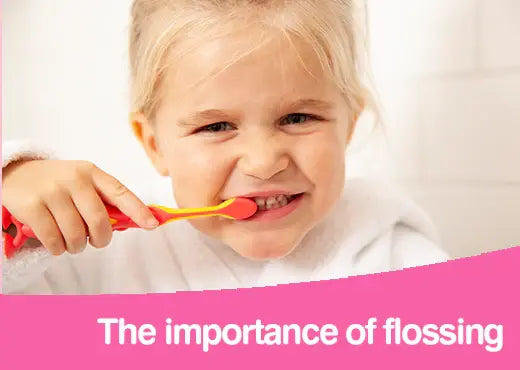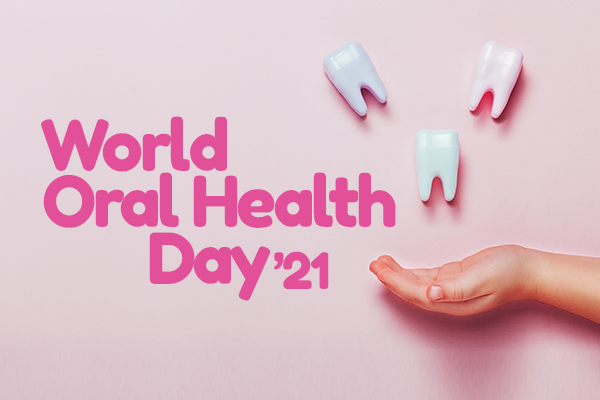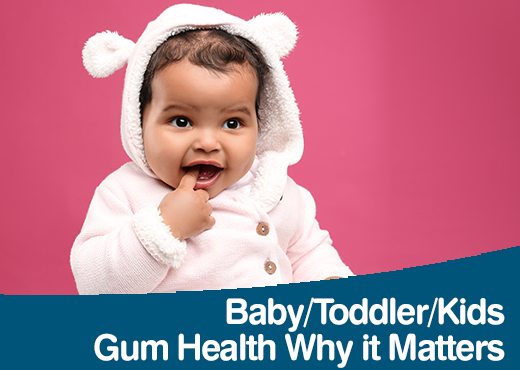7 Tips To Prevent Dental Cavities In Your Children

At brush baby, we care about the wellbeing of your little ones - especially when it comes to their dental hygiene. That’s why we cater for children from birth all the way to 10 years old! Starting with our baby tooth wipes which can be used from a newborn, our children's toothbrushes and infant toothpaste are designed to grow with your child. We also have a selection of the best baby teethers! Shop now!
Whilst we all try to maintain our little ones’ dental health, you wouldn’t be blamed for worrying over tooth decay. After all, roughly 28% of all children between the ages of 2-5 have at least one cavity! So it’s certainly something to consider and take care of.
A survey by the US Department of Health and Human Services in 2010 has even stated that cavities are a 5 times more common disease than asthma for children. And more than half of all American infants usually have cavities by the time that they reach second grade… so it’s a good idea to get protecting!
4 causes of tooth decay in children
Tooth decay occurs when there’s a growth of bacteria which hasn’t been cleared away properly, and it begins to eat away at the teeth which may be due to:
- Lack of proper dental care
- Irregular brushing of teeth
- Putting your baby to bed with a bottle (Baby bottle tooth decay)
- Eating too much sugary foods!
4 signs and symptoms of dental cavities to look out for in your little one’s mouths
- Pain which can range from mild and nagging to sharp and throbbing
- Stained teeth can indicate that their teeth are dealing with problems that can lead to cavities
- Feeling pain when they bite down on or drink anything that is very hot or cold
- Noticing a swelling in their mouths where the cavity is located
7 tips to prevent tooth decay in kids and babies:
Pick a dentist by their first birthday
Most children will usually need a dental exam along with cleaning by the age of one. Dental decay can often start to appear after 12 months, so the first birthday is the ideal time to prevent tooth decay with a professional!
Your child’s first dental visit establishes an ongoing relationship between your family and the dentist, and can help create a positive association early on with a dental professional. Doing this also allows you to get good guidance on developing good dental habits, and regular dental exams prevent early decay from turning into deeper, more painful cavities that require complicated procedures to treat.
Avoid baby bottle mistakes and introduce cups for drinking
Although it can be tempting to leave your little one untouched once they’ve fallen asleep with a bottle in their mouth – you should be sure to remove it as this will prevent any bacteria building up from the bottle’s contents.
Regular and prolonged bottle feeding also makes your baby’s chances of developing baby-bottle tooth decay much higher, so where possible, use cups to drink from!
Avoid sugary drinks and be smart about juice
Unfortunately juice does not make for a healthy diet as it no-longer acts like regular fruit in the body. It has been stripped of the usual fruit fibres and therefore digests as harmful sugars, as well as having more calories which tend to be absorbed differently too.
If you do wish to feed your little one fruit juice, make sure to check the label to see if it is 100% juice as most fruit drinks are often just water containing juice flavouring and a lot of sugars… not ideal for teeth!
Teach your child to brush and floss daily
Cleaning your baby’s gums with a soft piece of cloth is an excellent way to remove plaque before their first teeth come in. When they do start appearing, make sure to clean their teeth with a soft toothbrush and a small amount of fluoride toothpaste.
At the age of 3, their teeth will have usually started touching and this is the time to start flossing! Then you’ll have given them all the tools they need to keep a healthy mouth for life!
Provide your baby with healthy foods, add dairy products and limit starchy food
A great thing to make sure of for good dental care is that you are feeding your little one with nutritious foods, mixing them in ways that especially helps to reduce the risk of tooth decay.
You can offer meals that include whole grains, fruits and vegetables along with cheeses. These types of foods help clear your baby’s mouth of bad sugars as well as protecting against plaque… easy! Just remember to rinse and brush your child’s teeth after they eat sugary foods and you’re well on your way to protecting them with excellent dental care!
Detect cavities early & visit your dentist regularly
Tooth decay can be painful and affect the overall health of developing mouths which is why we try to avoid it at all costs! Visiting your family dentist regularly from early on can really assist you to keep your little one from unnecessary pain, and keep everyone smiling for life!
Teach proper brushing techniques
One of the best and often overlooked things to instill in young brushers is to use the right amount of toothpaste. Always brush using fluoride toothpaste in a pea-sized amount as it will help to remineralize the areas of your teeth that are weak and susceptible to decay, keep them happy and healthy instead!
What to expect if your child does have tooth decay
If you have sadly discovered some tooth decay in your little ones’ mouths then they will probably be in need of some sort of dental work. This can vary from a filling to fixing smaller cavities, and even to a full crown for extensive damage.
All dental work is very important to prevent the bacteria from spreading and leading to more decay, so act fast once discovered! But it’s also good to know that all this can be avoided if you keep up a regular dental routine as well as attending regular dental appointments too… your little one’s teeth will thank you for it!
Author: Grace Clark, Dental Marketer, Michael G. Long DDS
A dental marketer at Michael G. Long DDS and a believer in holistic health, Grace Clark lives by the rule that health and happiness go hand in hand. She writes on various topics focusing on dental and oral hygiene, healthy living and holistic health. When she’s not working or blogging, she enjoys spending her time with her family and volunteering at the local youth centers where she educates children about the importance of health and fitness.







